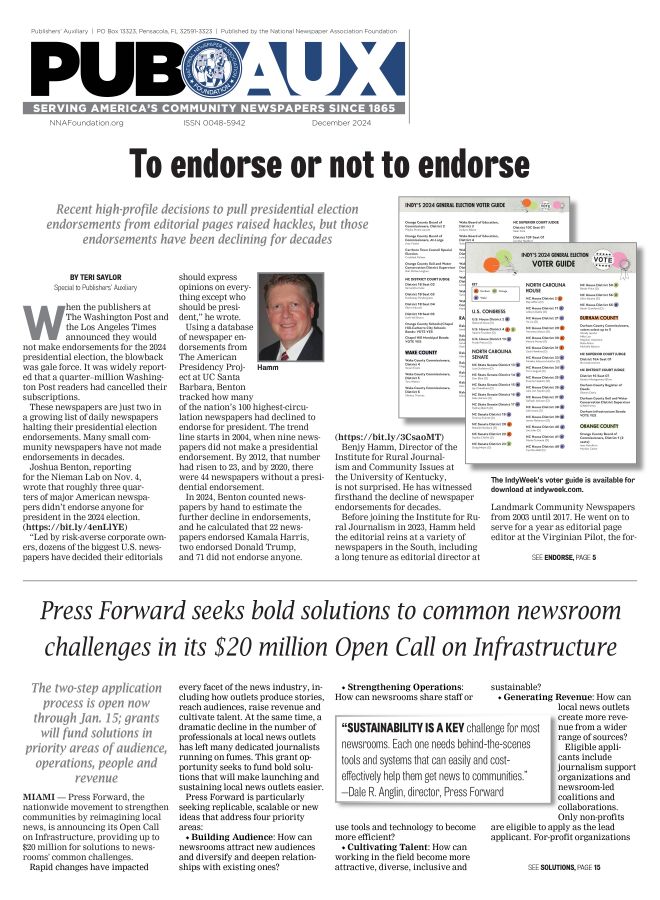Remembering the Holocaust, speaking the truth
Apr 15, 2015
Editors: This is the “Inside the First Amendment” column normally scheduled to be transmitted on Thursday, April 16. It is being transmitted early given the current events discussed in the column.
By Charles C. Haynes
Inside the First Amendment
In another of his patented truth-to-power moments, Pope Francis triggered international debate this week by having the temerity to call genocide "genocide."
Speaking at Sunday Mass on April 12, the pontiff described the killing of 1.5 million Armenians by Turks 100 years ago as "the first genocide of the 20th century" — a characterization of that horrific episode strongly supported by the evidence of history.
The Turkish government — which vehemently denies that the killings were genocide — has reacted with outrage, condemning the pope for spreading "hatred and animosity." Many other countries remain conspicuously silent, continuing their longstanding policy of tiptoeing around Turkish sensibilities on the Armenian question.
In the real world, it is Turkish denial — like Holocaust denial — that fuels hate and animosity.
As the pope explained in his sermon, "concealing or denying evil is like allowing a wound to keep bleeding without bandaging it."
Naming evil matters. Avoiding truth, appeasing transgressors, and downplaying atrocities allow evil to flourish — and history to repeat itself.
The pope's candor was a provocative start to the "Days of Remembrance" — an annual week of events commemorating international Holocaust Remembrance Day (Yon Hashoah) which falls on April 16 this year.
Tragically, the world has much to remember — or perhaps "confront" is the more apt term.
Anti-Semitism, the poisonous prejudice that fueled the Holocaust, is on the rise across the world, especially in Europe and the Middle East.
According to a survey released last year by the Anti-Defamation League, 26% of the world's population harbor anti-Semitic attitudes and, alarmingly, two out of three people surveyed have either never heard of the Holocaust, or do not believe historical accounts to be accurate.
Holocaust amnesia accompanied by worldwide resurgence of anti-Semitism are dire warnings that the world's promise of "never again" can't be relied on by the Jewish people — or by any other people.
Despite the lessons of history, genocide is chillingly common in the post-Holocaust world as we have seen in Cambodia, Rwanda, Burundi, and Bosnia — and see today in the ISIS-led genocide against Christians in Syria and Iraq.
"The enthusiasm generated at the end of the Second World War," warned the pope, "has dissipated and is now disappearing. It seems that the human family has refused to learn from its mistakes caused by the law of terror, so that today too there are those who attempt to eliminate others with the help of a few and with the complicit silence of others who simply stand by."
From the 219 girls still missing (and 2,000 additional girls and women kidnapped and enslaved) in Nigeria, to the Rohingya Muslims languishing in concentration camps in Myanmar, to the Christian communities under attack in Syria and Iraq, people around the world are facing forces of oppression and violence that the pope describes as nothing less than a "third world war."
If we care about our common humanity — and, selfishly, our own safety and security — we must find ways to "remember" by actively countering those who would persecute others in the name of their twisted, evil ideology.
Pope Francis is right: Remembrance means speaking unpleasant truths about the past — and breaking our complicit silence about the present.
Charles C. Haynes is vice president of the Newseum Institute and executive director of the Religious Freedom Center. Web:www.religiousfreedomcenter.org Email: chaynes@newseum.org







